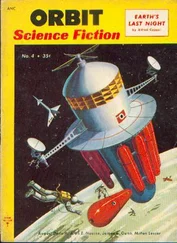Philip Dick - Time Out of Joint
Здесь есть возможность читать онлайн «Philip Dick - Time Out of Joint» весь текст электронной книги совершенно бесплатно (целиком полную версию без сокращений). В некоторых случаях можно слушать аудио, скачать через торрент в формате fb2 и присутствует краткое содержание. Жанр: Фантастика и фэнтези, на английском языке. Описание произведения, (предисловие) а так же отзывы посетителей доступны на портале библиотеки ЛибКат.
- Название:Time Out of Joint
- Автор:
- Жанр:
- Год:неизвестен
- ISBN:нет данных
- Рейтинг книги:5 / 5. Голосов: 1
-
Избранное:Добавить в избранное
- Отзывы:
-
Ваша оценка:
- 100
- 1
- 2
- 3
- 4
- 5
Time Out of Joint: краткое содержание, описание и аннотация
Предлагаем к чтению аннотацию, описание, краткое содержание или предисловие (зависит от того, что написал сам автор книги «Time Out of Joint»). Если вы не нашли необходимую информацию о книге — напишите в комментариях, мы постараемся отыскать её.
Time Out of Joint — читать онлайн бесплатно полную книгу (весь текст) целиком
Ниже представлен текст книги, разбитый по страницам. Система сохранения места последней прочитанной страницы, позволяет с удобством читать онлайн бесплатно книгу «Time Out of Joint», без необходимости каждый раз заново искать на чём Вы остановились. Поставьте закладку, и сможете в любой момент перейти на страницу, на которой закончили чтение.
Интервал:
Закладка:
That's what Mrs. Keitelbein and her son had started telling me. Civil Defense... _nothing but a history of war up to the present_. Models from 1998, to remind me.
_But why have I forgotten?_
To Mrs. McFee he said, "Does the name Ragle Gumm mean anything to you?"
The old woman laughed. "Not a darn thing," she said. "As far as I'm concerned Ragle Gumm can go jump in a hat. There isn't any one person who can do that; it's a whole bunch of people, and they always call them 'Ragle Gumm.' I've known that from the start."
With a deep, unsteady breath, Vic said, "I think you're wrong, Mrs. McFee. I think there is such a person and he really does do that."
She said slyly, "And be right, day in day out?"
"Yes," Ragle said. Beside him, Vic nodded.
"Oh come on," she said, screeching.
"A talent," Ragle said. "An ability to see a pattern."
"Listen," Mrs. McFee said. "I'm a lot older than you boys. I can remember when Ragle Gumm was nothing but a fashion designer, making those hideous Miss Adonis hats."
"Hats," Ragle said.
"In fact I still have one." Grunting, she rose to her feet and lumbered to a closet. "Here." She held up a derby hat. "Nothing but a man's hat. Why, he got them wearing men's hats just to get rid of a lot of old hats when men stopped buying them."
"And he made money in the hat business?" Vic said.
"Those fashion designers make millions," Mrs. McFee said. "They all do; every one of them. He was just lucky. That's it -- luck. Nothing but luck. And later when he got into the synthetic aluminum business." She reflected. "Aluminide. That was luck. One of these fireball lucky men, but they always wind up the same way; their luck runs out on them at the end. His did." Knowingly, she said, "His ran out, but they never told us. That's why nobody sees Gumm any more. His luck ran out, and he committed suicide. It's not a rumor. It's a fact. I know a man whose wife worked for the MPs for a summer, and she told him it's positive; Gumm killed himself two years ago. And they've had one person after another predicting those missiles."
"I see," Ragle said.
Triumphantly, Mrs. McFee told him, "When they made him put up -- when he accepted that offer to come to Denver and do their missile predicting for them, then they saw through him; they saw it was just bluff. And rather than stand the public shame, the disgrace, he--"
Vic interrupted, "We have to leave."
"Yes," Ragle said. "Good night." Both he and Vic started toward the door.
"What about your rooms?" Mrs. McFee demanded, following after them. "I haven't had a chance to show you anything."
"Good night," Ragle said. He and Vic stepped out onto the porch, down the steps to the path, and to the sidewalk.
"Will you be back?" Mrs. McFee called from the porch.
"Later," Vic said.
The two of them walked away from the house.
"I forgot," Ragle said. "I forgot all this." But I kept on predicting, he thought. I did it anyhow. So in a sense it doesn't matter, because I'm still doing my job.
Vic said, "I always believed you couldn't learn anything from popular tune lyrics. I was wrong."
And, Ragle realized, if I'm not sitting in my room working on the puzzle tomorrow, as I always do, our lives may well be snuffed out. No wonder Ted the driver pleaded with me. And no wonder my face was on the cover of _Time_ as Man of the Year.
"I remember," he said, stopping. "That night. The Kesselmans. The photograph of my aluminum plant."
"Aluminide," Vic said. "She said, anyhow."
Do I remember everything? Ragle asked himself. What else is there?
"We can go back," Vic said. "We have to go back. You do, at least. I guess they needed a bunch of people around you, so that it would look natural. Margo, myself, Bill Black. The conditioned responses, when I reached around in the bathroom for the light cord. They must have light cords, here. Or I did, anyhow. And when the people at the market ran as a group. They must have worked in a store here, worked together. Maybe in a grocery store out here, the same job. Everything the same except that it was forty years later."
Ahead of them a cluster of lights burned.
"We'll try there," Ragle said, increasing his pace. He still had the card Ted had given him. The number probably got him in touch with the military people, or whoever it was who had arranged the town in the first place. Back again... but why?
"Why is it necessary?" he asked. "Why can't I do it here? Why do I have to live there, imagining I'm back in 1959, working on a newspaper contest?"
"Don't ask me," Vic said. "I can't tell you."
The lights transformed themselves into words. A neon sign in several colors, burning in the darkness:
WESTERN DRUG AND PHARMACY
"A drugstore," Vic said. "We can phone from there."
They entered the drugstore, an astonishingly tiny, narrow, brilliantly lit place with high shelves and displays. No customers could be seen, nor a clerk; Ragle stopped at the counter and looked around for the public phones. Do they still have them? he wondered.
"May I help you?" a woman's voice sounded nearby.
"Yes," he said. "We want to make a phone call. It's urgent."
"You better show us how to operate the phone," Vic said. "Or maybe you could get the number for us."
"Certainly," the clerk said, sliding around from behind the counter in her white smock. She smiled at them, a middle-aged woman wearing low-heeled shoes. "Good evening, Mr. Gumm."
He recognized her.
Mrs. Keitelbein.
Nodding to him, Mrs. Keitelbein passed him on her way to the door. She closed and locked the door, pulled down the shade, and then turned to face him. "What's the phone number?" she said.
He handed her the card.
"Oh," she said, reading the number. "I see. That's the switchboard for the Armed Services, at Denver. And the extension is 62. That--" She began to frown. "That probably would be somebody in the missile-defense establishment. If they'd be there this late they must virtually live there. So that would make them somebody high up." She returned the card. "How much do you remember?" she said.
Ragle said, "I remember a great deal."
"Did my showing you the model of your factory help you?"
"Yes," he said. It certainly had. After seeing it, he had gotten onto the bus and ridden downtown to the supermarket.
"Then I'm glad," she said.
"You're hanging around," he said, "to give me systematic doses of memory. Then you must represent the Armed Services.
"I do," she said. "In a sense."
"Why did I forget in the first place?"
Mrs. Keitelbein said, "You forgot because you were made to forget. The same way you were made to forget what happened to you that night when you got up as far as the top of the hill and ran into the Kesselmans."
"But it was city trucks. City employees. They grabbed me. They worked me over. The next morning they started ripping out the street. Keeping an eye on me." That meant the same people who ran the town. The people who had built it. "Did they make me forget in the first place?"
"Yes," she said.
"But you want me to remember."
She said, "That's because I'm a lunatic. Not the kind you are, but the kind the MPs want to round up. You had made up your mind to come over to us, Mr. Gumm. In fact, you had packed your briefcase. But something went wrong and you never got over to us. They didn't want to put an end to you, because they needed you. So they put you to work solving puzzles in a newspaper. That way you could use your talent for them... without ethical qualms." She continued to smile her merry, professional smile; in her white clerk's smock she could have been a nurse, perhaps a dental nurse advocating some new technique for oral hygiene. Efficient and practical. And, he thought, dedicated.
He said, "Why had I made up my mind to come over to you?"
Читать дальшеИнтервал:
Закладка:
Похожие книги на «Time Out of Joint»
Представляем Вашему вниманию похожие книги на «Time Out of Joint» списком для выбора. Мы отобрали схожую по названию и смыслу литературу в надежде предоставить читателям больше вариантов отыскать новые, интересные, ещё непрочитанные произведения.
Обсуждение, отзывы о книге «Time Out of Joint» и просто собственные мнения читателей. Оставьте ваши комментарии, напишите, что Вы думаете о произведении, его смысле или главных героях. Укажите что конкретно понравилось, а что нет, и почему Вы так считаете.









